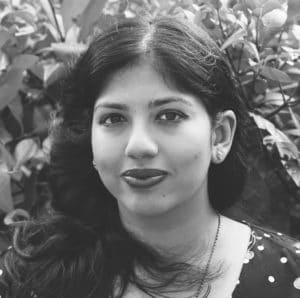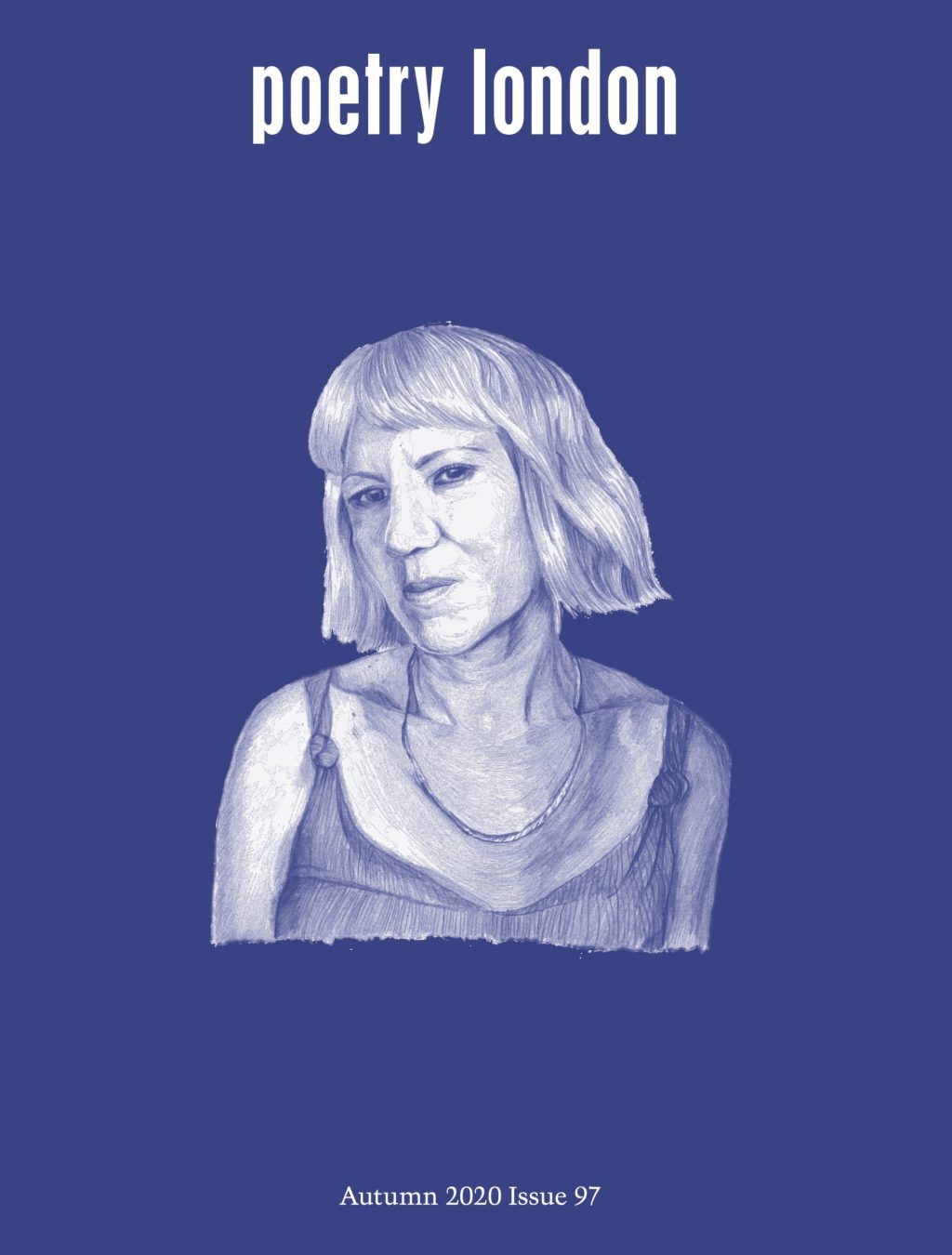An Interview with S. Niroshini, 3rd prize-winner in the Poetry London Prize 2020

Poetry London: Many congratulations on winning 3rd prize in this year’s competition! Can you tell us a little about when and why you wrote this poem, and why you felt it was the right one to submit to the prize?
S. Niroshini: I wrote a version of this poem earlier this year in a course with the extraordinary poet Shivanee Ramlochan.
The experiences of the body is something I have always been fascinated by as well as finding the words to describe the experiences of girlhood, trauma and dissociation, a peculiar form of ghostliness within oneself.
Many of the ideas and thoughts that are found in the poem have been percolating in my mind for years, if not decades. I felt a great urgency to write, and in an unfiltered way, after the death of a loved one in February and then the start of the pandemic. If not for these circumstances, I don’t think I would have written such a poem.
I adore the epistolary form and had also been reading the letters of various writers and artists including those of Rainer Maria Rilke, Vincent Van Gogh and the Indo-Hungarian artist Amrita Sher-Gil. The intimacy of this form is so striking. I think it was that sense of intimacy which let me construct a voice that could get close to articulating the experience of trauma and dislocation.
I didn’t think too much about which poem to submit. There was no other choice, no other poem that spoke as loudly to me. And if I thought too much about it, I probably would have lost the courage to submit!
PL: It’s interesting to hear that the circumstances of the pandemic and lockdown were so crucial to the writing of this poem. How has the current situation affected your ability and urge to write, and the subjects you’ve felt compelled to write about?
SN: Bereavement followed closely by a pandemic makes you reassess your sense of time and opportunity. Overall, I would say I have written more, with a greater intensity.
I have always been drawn to history but instead of just wider historical contexts I am interested more now in writing about personal histories and those of my family, particularly the experiences of girlhood and motherhood. I see an epic, mythic quality to those experiences which need some expression, some record, in writing.
I am obsessed with this passage from A Girl’s Story:
Someday there will be no one left to remember. What that girl and no other experienced will remain unexplained, will have been lived for no reason. (Annie Ernaux, Translated by Alison L. Strayer, Fitzcarraldo Editions)
That very much motivates me to write!
PL: The epistolary form – written communication while we’re physically apart – also feels very appropriate at this moment. Is it a form you’ve written in before?
SN: Very much so. This form has a strong influence on my writing.
Letters were one of the first forms of written communication that I loved as a child. At home I have a box full of letters from my grandmother, my cousin-sisters and friends written throughout the 1990s. Some of the most beautiful are from a pen-friend in Japan. I also kept a diary as a teenager which I think has an epistolary quality to it. Some of those diaries I’ve now destroyed!
The letters and diaries are so full of love, adolescent longing and rivalry— quite hilarious to read now. I couldn’t replicate that voice, even if I tried.
The idea of a letter, meant only to be read by one or a small number of people, still enchants me in a world where so little is private.
PL: What does it mean to you to have won 3rd prize in this competition, and does it change any of your plans or ambitions for the coming year?
SN: It is a wonderful prize and opportunity. I have loved reading the other poems and glad to share my work with readers. It has been so encouraging to read the judge Ilya Kaminsky’s comments. It feels like a sign that I am on the right path, to keep writing.
My focus at the moment is to finalise the manuscript to my first novel. I have been working on it over the last year and was supported by Spread the Word’s London Writers Award programme. It is a superb programme which I can’t recommend enough.
PL: Finally, can you tell us a little about your forthcoming pamphlet, and will this poem be included?
SN: I am excited to be publishing my debut poetry pamphlet with Bad Betty Press next year with a working title of Darling Girl.
These are poems that were written over the last few years and are very much influenced by my interest in South Asian history, epics and languages, particularly Tamil and Sanskrit. You may see this poem in there!


